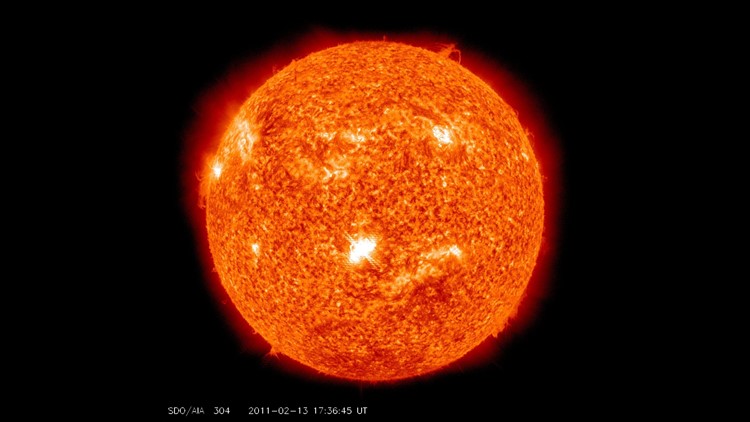(CNN) — Scientists have made a discovery about the sun’s “heartbeat” that they say indicates that Earth’s Northern Hemisphere will experience a deep freeze in 15 years.
The sun has a “solar heartbeat,” or cycle of activity, that produces energy that causes sunspots and solar flares. Scientists at Northumbria University in northeast England developed a model that illustrates the history of these heartbeats and that predicts there will be irregularities in them. The model suggests that solar activity will fall by 60% during the 2030s.
According to the Royal Astronomical Society, the researchers studied the sun’s magnetic field activity between 1976 and 2008. They compared their predictions with average sunspot numbers, another strong marker of solar activity, the society reported.
The researchers’ model showed a 97% level of accuracy, said Valentina Zharkova, a Northumbria University mathematics professor.
So how cold could it get?
The scientists say their findings could mean a deep freeze like the one Great Britain experienced around 1900, when the Thames River froze over.
CNN meteorologist Brandon Miller says the study looks intriguing, but it has not been peer reviewed, or subjected to the scrutiny of the larger scientific community.
“This isn’t published research yet,” he said. “Our ability to forecast the specifics of a solar cycle is incredibly poor. It’s worse than forecasting in a hurricane season.”
Doug Biesecker, who works at the Space Weather Prediction Center at the National Oceanic and Atmospheric Administration in Boulder, Colorado, agrees with Miller.
He said the research shouldn’t give anyone the idea that because the weather may cool, climate change is not something to be worried about.
“It’s a very complicated issue,” Biesecker, an expert in solar physics, told CNN. “Does the sun have a role in our variable climate? Yes. Is the dominate role? No. Even the concept of the sun being responsible for Europe’s mini ice age — it’s not hard and fast true.”
Bottom line: The research needs a closer look.



